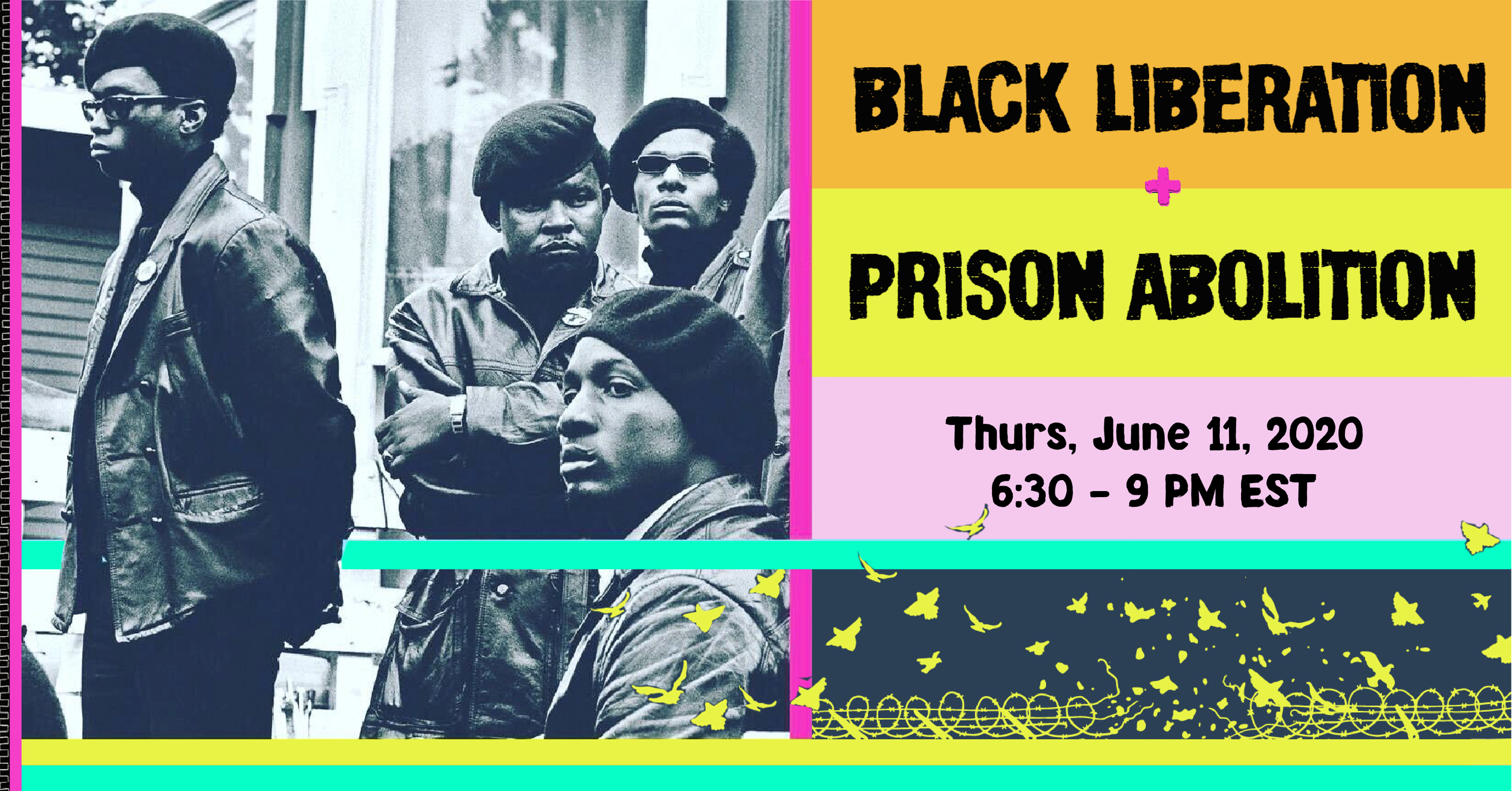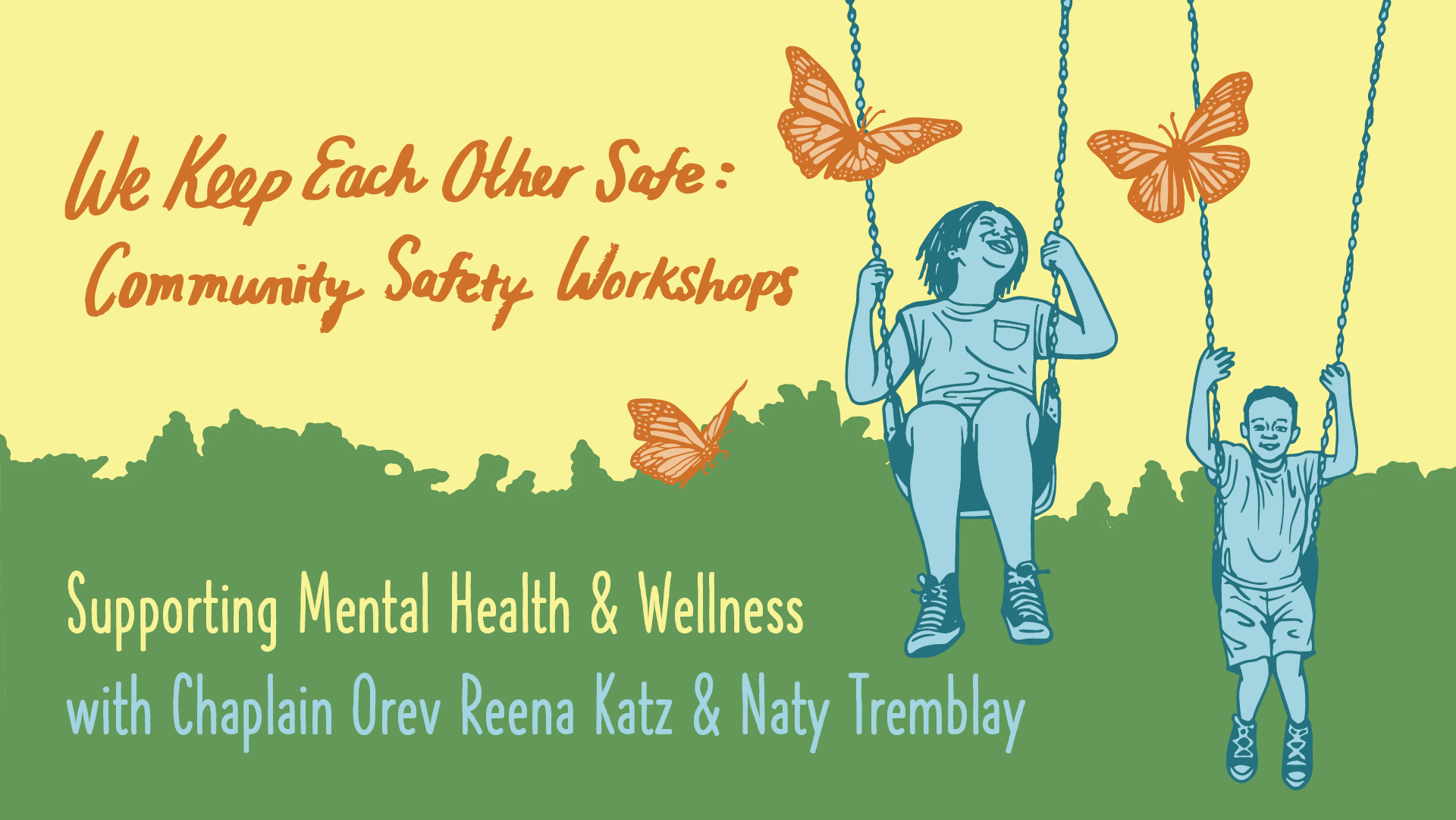Webinar Series
Our webinar series, organized alongside the Criminalization and Punishment Education Project (CPEP) in Ottawa, uses our platform to engage in public education, centering the knowledge and experiences of people with lived experience.
Contain COVID-19, Not People: Advancing Prison Abolition During the Public Health Crisis
The current COVID-19 pandemic has raised significant concerns for the health and safety of incarcerated peoples who cannot, as per public health recommendations, practice social distancing. Recognizing this and its implications for the broader objective of COVID containment, jurisdictions across the world, including in Canada, have begun implementing conditional releases for select institutionalized populations. That something purportedly unimaginable – decarceration – is now taking place in the name of public health and safety poses a potential point of leverage for thinking through the practical workings of abolitionist projects.
This panel brings together activists and frontline workers to discuss the relationship between health, incarceration, and abolition amidst the current crisis.
SPEAKERS:
• Syrus Marcus-Ware, Black Lives Matter-Toronto
• El Jones, East Coast Prison Justice
• Lindsay Jennings, Prisoners with HIV/AIDS Support Action Network (PASAN)
• Souheil Benslimane, Criminalization and Punishment Education Project
• Dean Spade, Associate Prof at Seattle University School of Law
Moderated by Jessica Evans, Toronto Prisoners Rights Project
No One is Disposable: Identifying Who is Left Behind in the Depopulation of Prisons
Despite the immense dangers posed to prisoners during to COVID-19, thousands of people remain behind bars in Canada and individuals continue to be newly incarcerated. While many provinces and territories are taking steps to depopulate their jails and prisons, the federal government has not taken action to release people being held in their penitentiaries, immigration detention facilities, or community custody settings. This inaction puts the health and lives of prisoners at increased risk and raises questions about who is considered deserving of freedom and safety.
Others pushed to the margins, including people in psychiatric centres and youth custody facilities, have also been left behind by efforts to depopulate carceral settings.
This webinar will discuss what is at stake for those left behind and beyond the walls, and what you can do to force governments to reduce the use and harms of imprisonment, while working to improve public health and community safety through a just transition from the prison industrial complex.
SPEAKERS:
Robyn Mayard
Anita Szigeti
Justin Piché
Moderated by Jessica Evans
Building Communities, Note Cages: Meeting the Needs of People Exiting Prisons
Over the last two weeks, over 2,947 prisoners have been released or diverted from detention across Canada. This is a positive development, but one which must be met with equal measures to build up community supports. Prison abolitionists have long argued that the project of abolition is not simply one of eliminating jails and prisons but must also involve efforts to build deep community supports and solidarities.
This panel brings together people with lived experience, frontline workers and researchers to discuss what we must do to support people being released and diverted from detention, and how to leverage this moment of community-building for the long-term struggle to realize decarceral futures.
SPEAKERS:
• Zoë Dodd
• Tyson Young
• Charlotte Smith
• Rima Berns-McGown
• Dan Parlow
Moderated by Jessica Evans
Supporting Those Left Inside: Meeting Needs Behind Prison Walls During the Pandemic
While a significant number of prisoners are being released or diverted from detention across Canada, the majority of incarcerated populations remain locked inside. Support for behind the walls could not be more urgent, with prisoners and guards rapidly becoming infected with COVID-19, recent deaths in custody, and the Brampton jail being shut down.
Due to crowding, unsanitary conditions, and a lack of access to healthcare, sanitation, and PPE behind bars - the COVID-19 pandemic poses a grave risk to prisoners, staff, and their communities.
This panel brings together people with lived experience, family members of those inside, frontline workers and lawyers to discuss what we must do to support people who remain incarcerated, and how to highlight the chronic failures of the criminal injustice system to push for decarceral futures.
SPEAKERS:
Anthony Morgan
Kevin Egan
Lindsay Jennings
Barton Solidarity Project
Jail Accountability Hotline
... and more!Moderated by Souheil Benslimane
Indigenous Knowledge and Abolition: Criminalization, Decolonization and Lessons from Indigenous Justice Systems
Processes and practices of criminalization and incarceration have always been tied to settler-colonial endeavours to appropriate and occupy Indigenous lands. As such, the impact of incarceration and criminalization on Indigenous peoples plays a critical role in the ongoing colonization of Turtle Island, and our abolitionist efforts must be decolonial.
At the same time, Indigenous communities across Turtle Island have long practiced alternative and restorative justice systems, which are important for thinking through decarceral futures.
This panel brings together Indigenous and anti-colonial community members, frontline workers, and researchers to discuss the impact of the current pandemic on incarcerated Indigenous peoples, as well as the important lessons and models which Indigenous world-views offer for imagining and realizing prison abolition.
SPEAKERS:
Pamela Palmater
Giselle Dias
Joey "Twins" Young
Wanda Whitebird
Les Harper
Moderated by Nicole Penak
Censorship in Prisons
Since the outbreak of COVID-19, activists, researchers, frontline workers and families have been publicly denouncing the opacity of information coming out of provincial jails and federal prisons. Questions about testing, active cases, safety precautions and discharge planning are routinely posed to political leaders - and just as often they are evaded. Similarly, the range of information going into prisons is routinely censored, limiting prisoners’ access to essential connections, resources, and news (particularly important during the current pandemic).
This panel brings together legal experts, journalists, people with lived experience and frontline workers to discuss the problem of censorship and access to information in prisons.
SPEAKERS:
• Paul Wright, Executive Director, Human Rights Defense Center and Editor, Prison Legal News
• Laureen St. Amour, mother of the late Justin St. Amour
• Yavar Hameed, Human Rights Lawyer
• Martha Painter, Womens’ Wellness WIthin
• Sena Hussein, Communications & Resource Development Coordinator, PASAN; Lead Editor, Cell Count magazine
• Jarrod Shook, artist & activist
Moderated by Lindsay Jennings, Provincial Hep C Coordinator, PASAN
The Prison State During the Pandemic
Since the onset of COVID-19, news coverage has been saturated with stories about community organizing and mutual-aid efforts. However, little air-time has been given to the vast amount of organizing and mutual-aid work that has developed to respond to the rights and needs of prisoners. From solidarity caravans, financial support funds, and public education, to twitter storms, hunger strikes and coordinated efforts to get answers from politicians, the volume of solidarity and abolition work around prisoners is astounding and varied from province to province.
This webinar will check-in with abolitionist organizers across North-Turtle Island, assessing what gains have been made during COVID-19 and what still needs to be done.
SPEAKERS:
• Meenakshi Mannoe, Vancouver Prison Justice Day Committee
• Anonymous Member, Montreal-based Anti-Carceral Group
• Hanna Garson, East Coast Prison Justice Society
• Dr. Bronwyn Dobchuk-Land, Bar None Winnipeg; Assist. Prof. University of Winnipeg
• Nancy Van Styvendale, Free Lands Free Peoples; Assoc. Prof. University of Alberta
Moderated By Jessica Evans, Toronto Prisoners' Rights Project; Assist. Prof. Ryerson University
Black Liberation and Prison Abolition
Black communities throughout history have been leaders in the movement to abolish prisons and demand justice for prisoners. Their works have informed prison abolitionists around the world - highlighting not only the dangers of the carceral system but providing transformative models for alternatives. In this webinar, we will hear from Black community leaders who will reflect on the history of Black liberation and abolition, and learn about the movements being led by Black people here on Turtle Island.
SPEAKERS
Ashanti Omowali Alston, Black Liberation Army & Black Panther Party
Viviane Saleh-Hanna, Professor and Chairperson of Crime and Justice Studies at UMass Dartmouth
Sandy Hudson, Black Lives Matter-Toronto & Black Legal Action Centre
Morgan Switzer-Rodney, BlackChat Vancouver
Moderated by Syrus Marcus-Ware, artist, activist, scholar; BLM-TO; Toronto Prisoners' Rights Project; Abolition Coalition
Defund Police and Prisons
The murder of George Floyd has sparked a national and global movement calling on local jurisdictions to defund their police. This demand is not new and is in response to a long history of deadly racist police uses of force. In Canada, as in the U.S., police interactions with Black, Indigenous, and racialized community members, often end in death. The recent deaths of Regis Korchinski-Paquet, D’Andre Campbell, and Chantel Moore at the hands of police called-in for ‘wellness’ checks have sparked similar calls to defund police in Toronto.
Given the increased global attention to defunding police and prison abolition, this panel brings together organizers, activists and people with lived experience from across north-Turtle Island to discuss the basics of police and prison defunding, community alternatives to police, and ultimately, prison abolition. Together, we will learn from past successes and ask - what does defunding police and prisons mean in action? Where should resources go instead? And how can we care for each other and ensure accountability in a world without police?
Speakers:
• Rachel Herzing, Co-director, Centre for Political Education; Co-founder, Critical Resistance
• Gita Rao Madan, Education Not Incarceration; Toronto Abolition Collective
• Samson Dekamo, Hamilton Centre for Civic Inclusion; HWDSB Kids Need Help
• Louis March, Founder & Director, Zero Gun Violence Movement; volunteer community worker and advocate
Moderated by Gabby C Aquino, Toronto Prisoners’ Rights Project
We Keep Each Other Safe: A Community Forum to Organizer Alternatives to Policing
Opening Ceremony: Phyllis Mckenna (Waabaande Mi'ingun Kwe)
- First Organizer Panel -
Amina Mohamed
Rawan Q.
Vanessa Gray
Cricket Clement
Naty Tremblay
Syrus Marcus Ware
Krisna Saravanamuttu
Scout (SURJTO)
- Second Organizer Panel -
Tamyka Bullen
Cathy Crowe
Kim Vaz
Khadija Kanj
Nataleah Hunter-Young
Jenn Chan
Pam Frache
Che
- Third Organizer Panel -
Lindsay Jennings
Sima Atri
Anna Malla
Lorraine Lam
Moka Dawkins
Rana Nazzal Hamadeh
Kiké Roach
Nasim Asgari
- Fourth Organizer Panel -
Andrea Vásquez Jiménez
Ayaan Aye
Sue Lynn
Abigail Danquah
Janet Rodriguez
Robyn Maynard
Simran Dhunna
Elaine Lam
Suicide Intervention: We Keep Each Other Safe Community Safety Workshop
This suicide intervention workshop (for weirdos, freaks, and queers) focuses on peer and community-based strategies for supporting folks in our lives who might be suicidal, as well as examining the beliefs and structures that keep suicide conversations under wraps.
Facilitated by Carly Boyce
Supporting Mental Health & Wellness: We Keep Each Other Safe Community Safety Workshop
The first step towards building our collective capacity is to become connected with our own selves, our histories and how we be in the world around us. Using arts-based tools, Orev and Naty facilitated a 2-part workshop, starting with how we can resource our own mental health in doing the work of Transformative Justice, and moving to explore scenarios for mental health crisis intervention in and outside of carceral environments.
Facilitated by Chaplain Orev Reena Katz and Naty Tremblay












